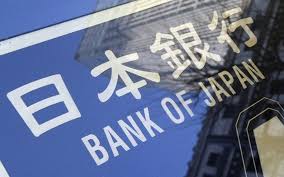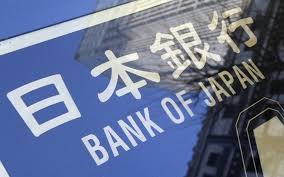
While keeping its policy stance unchanged, as was widely expected in its latest policy review, the Bank of Japan raised its economic growth forecasts.
From its previous forecast, made in October, of 1.0 percent growth, the central bank raised its gross domestic product (GDP) forecast to 1.4 percent for the current fiscal year. For for fiscal 2018, it raised its forecast to 1.1 percent, from 0.9 percent and for fiscal 2017, it raised its economic growth forecast to 1.5 percent, from 1.3 percent.
It expected inflation to rise to around its target of 2 percent around fiscal 2018, the BOJ said in a statement on Tuesday. Signs of medium-to-long term inflation expectations were showing some indications of rising and have stopped declining, it cited in the statement.
With a pickup in international commodity prices set to push up consumer prices, the labor market was tightening and that the effects of commodity-price declines were set to dissipate, it also noted.
While in fiscal 2017, the BOJ expected inflation of 1.5 percent, but compared with its October forecast for a 0.1 percent fall, it expected the consumer price index (CPI) excluding fresh food, its preferred indicator, would fall 0.2 percent for the current fiscal year.
Growth upgrades could be justified, analysts at DBS said in a note before the announcement.
"Japan's exports and manufacturing have showed clear signs of recovery compared to a quarter ago, thanks to the improvement in the global economy, rebound in commodity prices and depreciation of the yen," DBS said.
Compared with as much as 113.73 yen shortly before the statement, the yen briefly strengthened after the decision, with the dollar fetching as little as 113.21 yen after the announcement.
Likely tempered by uncertainty as the U.S., one of Japan's key trading partners, appeared set to pursue protectionist policies, the BOJ decision followed some signs of improvement in the economy.
The consequences of Brexit, European debt issues as well as unspecified geopolitical risks, developments in the U.S. economy and monetary policy and the emerging market economies, particularly China, were mentioned as the risks by the BOJ in the statement.
With its current yield-curve control policy, introduced at its late-September meeting, the central bank had been widely expected to stay the course.
The target yield for the benchmark 10-year Japanese government bond was kept at around zero percent by the BOJ. To keep the benchmark yield in line with its target, the BOJ has been willing to intervene. Helping to boost bond prices and bring the benchmark's yield closer to its target, the central bank offered a special bond buying operation in mid-November.
Industrial output in the fourth quarter climbed 2.0 percent on-quarter, noted Capital Economics' senior Japan economist Marcel Thieliant.
"That's the strongest gain since immediately before 2014's sales tax hike and appears consistent with a sizeable increase in gross domestic product," Thieliant said in a note on Tuesday before the BOJ decision.
Data on Tuesday showed a slightly better than a Reuters poll forecast for a 0.6 percent fall, household spending in December fell 0.3 percent on-year.
Below expectations from a Reuters poll for a 1.3 percent rise, data released on Monday showed Japan's retail sales rose 0.6 percent on-year in December.
(Source:www,cnbc.com)
From its previous forecast, made in October, of 1.0 percent growth, the central bank raised its gross domestic product (GDP) forecast to 1.4 percent for the current fiscal year. For for fiscal 2018, it raised its forecast to 1.1 percent, from 0.9 percent and for fiscal 2017, it raised its economic growth forecast to 1.5 percent, from 1.3 percent.
It expected inflation to rise to around its target of 2 percent around fiscal 2018, the BOJ said in a statement on Tuesday. Signs of medium-to-long term inflation expectations were showing some indications of rising and have stopped declining, it cited in the statement.
With a pickup in international commodity prices set to push up consumer prices, the labor market was tightening and that the effects of commodity-price declines were set to dissipate, it also noted.
While in fiscal 2017, the BOJ expected inflation of 1.5 percent, but compared with its October forecast for a 0.1 percent fall, it expected the consumer price index (CPI) excluding fresh food, its preferred indicator, would fall 0.2 percent for the current fiscal year.
Growth upgrades could be justified, analysts at DBS said in a note before the announcement.
"Japan's exports and manufacturing have showed clear signs of recovery compared to a quarter ago, thanks to the improvement in the global economy, rebound in commodity prices and depreciation of the yen," DBS said.
Compared with as much as 113.73 yen shortly before the statement, the yen briefly strengthened after the decision, with the dollar fetching as little as 113.21 yen after the announcement.
Likely tempered by uncertainty as the U.S., one of Japan's key trading partners, appeared set to pursue protectionist policies, the BOJ decision followed some signs of improvement in the economy.
The consequences of Brexit, European debt issues as well as unspecified geopolitical risks, developments in the U.S. economy and monetary policy and the emerging market economies, particularly China, were mentioned as the risks by the BOJ in the statement.
With its current yield-curve control policy, introduced at its late-September meeting, the central bank had been widely expected to stay the course.
The target yield for the benchmark 10-year Japanese government bond was kept at around zero percent by the BOJ. To keep the benchmark yield in line with its target, the BOJ has been willing to intervene. Helping to boost bond prices and bring the benchmark's yield closer to its target, the central bank offered a special bond buying operation in mid-November.
Industrial output in the fourth quarter climbed 2.0 percent on-quarter, noted Capital Economics' senior Japan economist Marcel Thieliant.
"That's the strongest gain since immediately before 2014's sales tax hike and appears consistent with a sizeable increase in gross domestic product," Thieliant said in a note on Tuesday before the BOJ decision.
Data on Tuesday showed a slightly better than a Reuters poll forecast for a 0.6 percent fall, household spending in December fell 0.3 percent on-year.
Below expectations from a Reuters poll for a 1.3 percent rise, data released on Monday showed Japan's retail sales rose 0.6 percent on-year in December.
(Source:www,cnbc.com)





